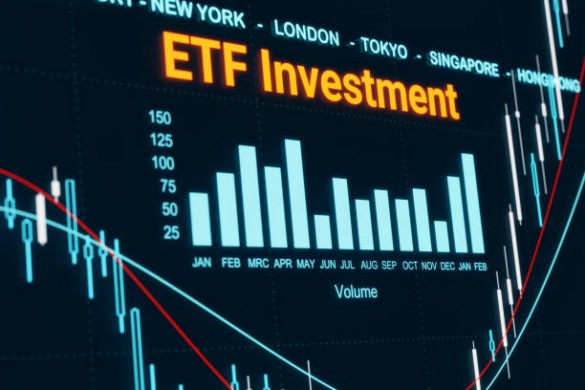With the recent debut of Bitcoin spot ETFs, all eyes are now fixated on the potential advent of Ethereum ETFs. Should they gain approval, it would mark a monumental milestone for Ethereum, democratizing access for investors to seamlessly integrate Ethereum into their portfolios sans the hassle of managing crypto wallets, effectively democratizing access to ETH.

Nevertheless, Ethereum ETFs are poised to diverge significantly from their Bitcoin counterparts. Ethereum’s unique offerings extend beyond mere investment potential. Unlike Bitcoin, Ethereum provides incentives in the form of staking yields, akin to dividends in the traditional financial realm. Furthermore, ETH boasts utility beyond its investment allure; it serves as the lifeblood for executing transactions on the Ethereum network.

The Enigma of Staking: Unraveling Ethereum’s Core
Following Ethereum’s transition to a Proof-of-Stake consensus mechanism, staking has emerged as a fundamental function. Participants lock up their ETH, which is then leveraged to validate new transactions. In return, these validators are rewarded with “staking rewards.”
The Ethereum algorithm meticulously selects validators to verify each new data block based on their staked crypto holdings. The more one stakes, the greater the likelihood of selection. If chosen, the validator reaps the benefits of newly minted crypto as a reward for their contributions, colloquially referred to as “yield.”
Ethereum ETFs Across the Globe
While SEC approval for a US-based fund hangs in limbo, Ethereum ETFs have been flourishing in Canadian and European markets for several years. Notable funds such as the CI Galaxy Ethereum (Ticker: ETHX.B) and 3iQ Ether Staking ETF (Ticker: ETHQ) made their debut in the Canadian market in April 2021.
Likewise, the 21Shares Ethereum Staking ETP and the VanEck Ethereum ETN emerged in March 2019 and March 2021, respectively.But how do these Ethereum ETFs navigate the intricacies of staking? Some spot ETH ETFs incorporate Ether staking rewards, while others abstain.
For instance, 21Shares’ fund currently delivers a yield reward of 1.48%, with the staking process managed on behalf of investors, who then receive a proportional percentage of the returns. Notably, it stands as one of the largest crypto asset ETFs by market capitalization, boasting a total AUM of $380.5 million.
While staking underscores a pivotal advantage of Ethereum, it has also ignited concerns within the SEC. The ability to stake inherently implies a degree of centralization, given the concentration of contributors tasked with maintaining Ethereum’s infrastructure.

Anticipating the Impact of an Ethereum ETF on ETH Price
While the prospect of an ETH ETF holds promise for Ethereum’s long-term growth, there’s considerable price action to anticipate before these funds hit the market. Employing the age-old trading adage “Buy the rumor, sell the news” could provide insights into potential market movements.
Drawing parallels from recent examples in the tech stock realm, the surge in interest surrounding AI in 2024 offers valuable lessons. Tech giants like Nvidia ($NVID) capitalized on this trend, witnessing significant single-day surges in the lead-up to their earnings announcements.
However, the actual unveiling often resulted in temporary price spikes followed by declines, adhering to the “Buy the rumor, sell the news” principle.Speculation arises regarding the inclusion of staking rewards in US-based ETH ETFs.
Despite the appeal, regulatory hurdles pose challenges, with the SEC expressing reservations about incorporating staking into investment products. Initial offerings may adopt a “plain vanilla” approach, focusing solely on tracking Ethereum’s price without offering rewards.
Consequently, investors may find greater value in buying and staking ETH independently.Looking beyond spot ETH ETFs, futures-based alternatives like the VanEck Ethereum Strategy ETF and ProShares Ether Strategy ETF offer additional investment avenues for US investors. Unlike spot ETFs, futures ETFs entail betting on Ethereum’s future price, providing distinct strategic opportunities.
Conclusion
While Ethereum ETFs promise simplified trading, investors must weigh the convenience against potential trade-offs, such as forgoing staking rewards.
Ethereum’s position as the premier smart contract blockchain, coupled with visionary leadership from figures like Vitalik Buterin and robust community support, underpins its enduring competitive advantage in the crypto landscape.
Learn from market wizards: Books to take your trading to the next level


 Hot Features
Hot Features











